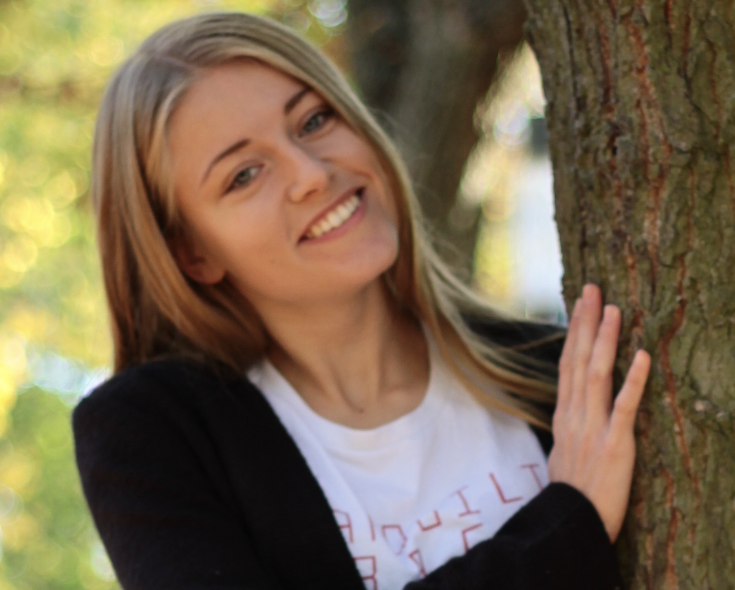Faculty 2: Award for the best bachelor thesis 2021
Viticulture in cold temperate climates could potentially benefit from climate change, so much so that the Welzow-Süd post-mining landscape was recultivated into a vineyard in 2009. Nevertheless, the increased likelihood of heat events and drought in an already water-scarce region could pose a challenge. Therefore, air temperature and global radiation are thought to have a significant impact on ecophysiology, such that heat and high light stress lower the chlorophyll index and maximum quantum yield Fv/Fm of grapevines during the growing season until the beginning of autumn, while anthocyanin and flavonol indices increase.
The study mainly distinguished between sun-exposed and shaded leaves, some of which were inside and outside a growth network. A weather station was used to document climatic parameters at ten-minute intervals at the vineyard, as well as global radiation, photosynthetically active radiation, and soil moisture. Between June and October 2020, 16 field measurements were made to determine leaf pigment indices, Fv/Fm values, and surface temperatures of randomly selected leaves.
During the study period, there were only a few days with air temperatures above 35°C and regular rainfall. On the other hand, the different exposure to light irradiation showed that the sun-exposed leaves had lower chlorophyll indices and Fv/Fm values compared to the shaded leaves, while the indices of anthocyanin and flavonol were significantly higher. In addition, significant differences were observed between the sun-exposed leaves inside and outside the network.
Overall, the sun-exposed leaves showed more impaired ecophysiology and higher leaf-air temperature differences than the shaded leaves. However, the air temperature did not exceed a certain threshold, so the photosynthetic efficiency of the vines was not negatively affected. Nevertheless, it is necessary to compare the data with further measurements on the vineyard, which could represent a potentially more extreme climate in the future.
Contact
Stabsstelle Kommunikation und Marketing
T +49 (0) 355 69-3126
susett.tanneberger(at)b-tu.de

